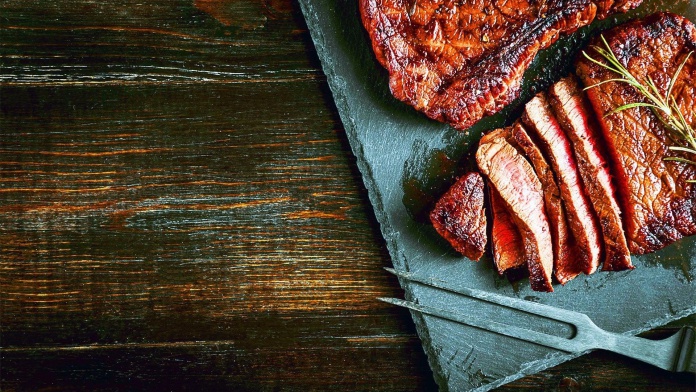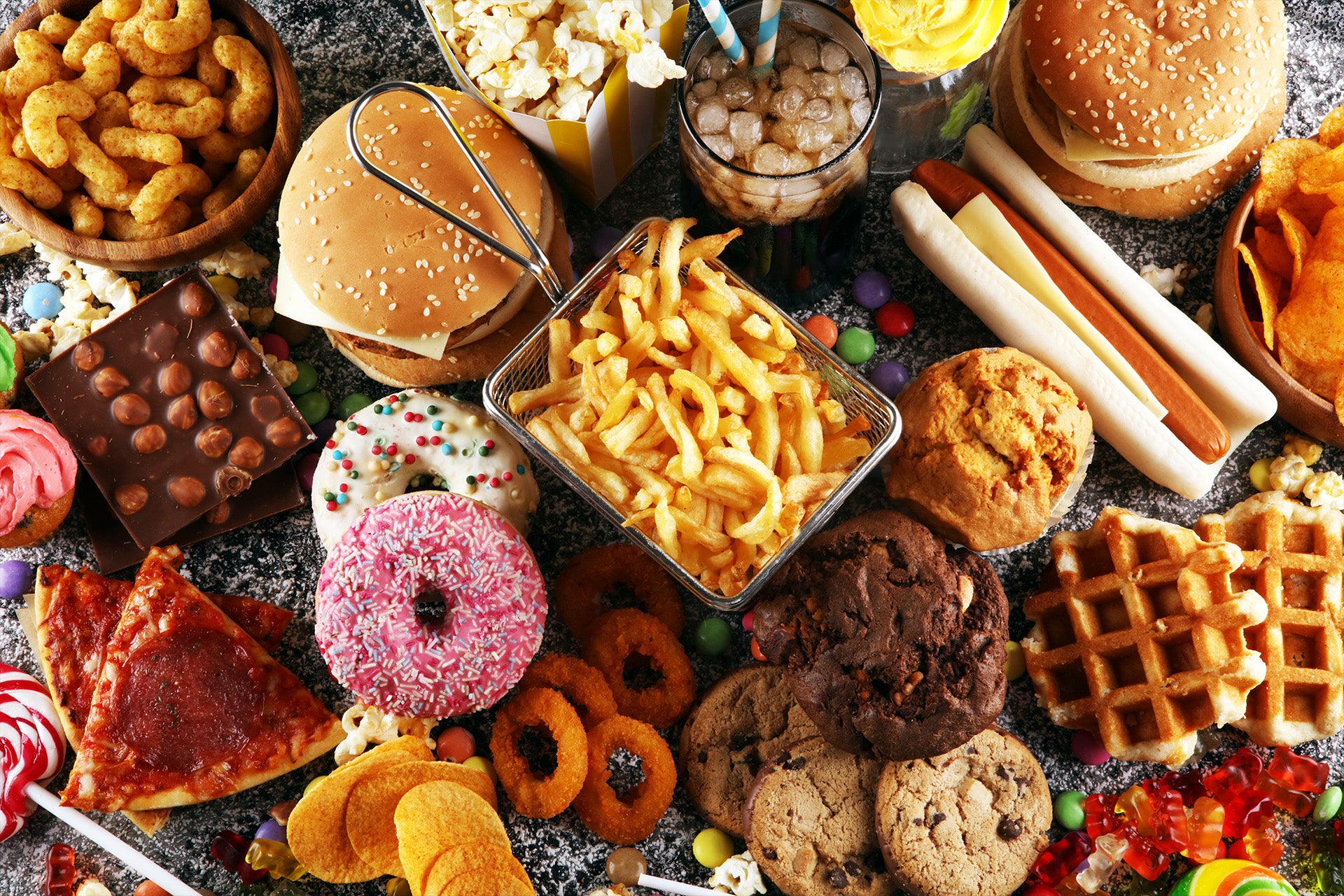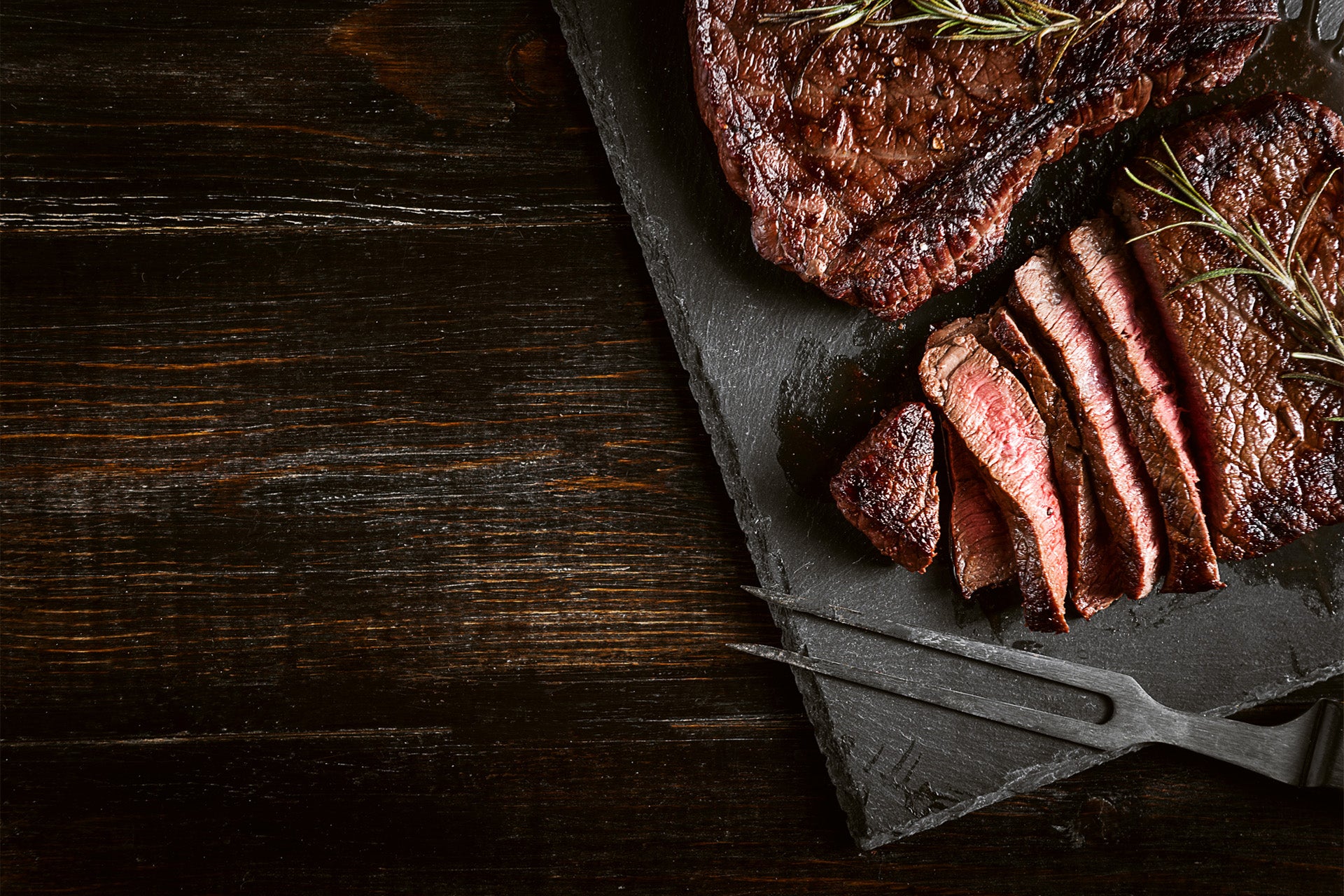
Is red meat bad for you?
This is an interesting question that I’ve wanted to talk about here for a long time. It’s a bit of a read, so do give yourself a good 15 min slot to get through it…
It’s noteworthy that while nutrition is an area of scientific exploration – something that is tested and studied in a laboratory – it’s also, perhaps more so than almost any other thing that finds itself under the scrutiny of the scientific community, a day to day practice embedded in culture and a person’s identity. The food you do and don’t eat makes up a large part of who you are and what you do on a daily basis, and while I don’t honestly think this is a useful or remotely productive way of thinking (indeed as I’m kinda hinting at here it’s probably harmful in places) it’s not going away any time soon and so it’s worthwhile to try to understand it and keep it in mind.
People identify with being on a gluten free diet, a plant-based diet, a low carb diet, and so on, and because of this the tribal nature of human beings enables us to perceive a ‘them’ and an ‘us’. ‘We’ eat properly or virtuously, while ‘they’ eat improperly or without virtue. This, as it always does, leads to conflict which has more to do with supporting your team than it does an honest desire to find truth. This means that the conflict rumbles on with both sides finding more and more evidence to bolster what they already decided is true, and dismissing evidence over and over that doesn’t support the belief that they hold dear.
Obviously, this conflict is verbal rather than actual but it exists nonetheless and people can get – to put it mildly – a bit shitty with other people if they feel that they’re not doing nutrition right.
If you consume artificial sweeteners, you’re a sheep being killed by the powers that be, poisoning yourself and your kids because of corporate profit. If you don’t consume these things, you’re an idiot. If you eat carbohydrates, you’re, again, a sheep that doesn’t possess critical thinking skills to see past all the marketing, whereas if you don’t eat carbs, you’re just a fad-dieting moron. The list goes on.
Now, while a lot of the confusion in the above paragraph comes from misinformation and the dunning-kruger effect (people overestimate their expertise), it’s at least partly understandable. Nutrition science is complicated, difficult to interpret at times, and highly nuanced. It’s also disseminated by people with very little interest in science a lot of the time – rather many people communicating about nutrition science either:
- Want to support their nutritional team regardless of counter evidence
- Don’t care in the slightest and just want clicks
- Are doing the first thing but don’t know it
This is unintentional in many instances but often it isn’t. People – including doctors and people who sit on health boards – hold particular beliefs about nutrition that they don’t really want to back away from and this is why we exist in a world where some cardiologists are promoting the idea that everyone should be on a ketogenic diet while others are making claims that amount to “if you’re a cardiologist and you don’t recommend a vegan diet you don’t understand the literature”
Now, whether or not those in the public space making overly confident or simply wrong claims are doing it on purpose or not isn’t really relevant because the final outcome is the same regardless of the reasons: we reach a point where nutrition, regardless of what can be ascertained by an honest, in-depth look at the data, is something about which everyone has an opinion, and that opinion is held extremely strongly, meaning they will defend it
Because nutrition science is so complicated and most people are invested in a particular idea within it, it’s communicated chiefly by people who have a team to support (including people who have a PhD or MD), and people self-select only information that they already agree with. This means that answering the question “is red meat bad for you?” is actually more difficult than you would expect. This is partly because your particular ideological viewpoint will determine the way in which you interpret the question.
So, what question SHOULD we be asking?
In my opinion, the fairest and most honest way to interpret this question is this: Is red meat directly harmful to your health without context? Or to put it another way:
If someone was to eat a diet that most would agree is health-promoting (calorie appropriate, rich in a diverse range of fruits and vegetables, high in fibre, and so on) and they were leading an active lifestyle that minimised stress and included adequate sleep, would they become less healthy if they were to eat red meat regularly?
If you agree that this is the question we should be asking, and I hope you do, then that means that in order to make the claim that red meat is bad for you, the evidence would have to show that in the above conditions a person’s health would deteriorate reliably.
Unfortunately, as you will see below, this question remains to be answered. Rather, the following related but not exactly-the-same questions have been addressed:
- Are people who eat red meat less likely to avoid dying/cancer/cardiovascular disease?
- Are there things in meat which, when taken in isolation, can be construed as being potentially harmful?
- When people make a lifestyle change which includes but is not limited to removing meat, does their health improve?
While all of these have been answered fairly categorically in the literature (and the answer is a definite yes) this is not the same as answering the question I posed above in itallices, though, and this is a very important factor to keep in mind because while those who want to do so are able to infer from this data that meat is indeed bad for you, that’s not actually the conclusion that has been drawn.
Now to illustrate this I’ll focus on the link between red meat and cancer. I’m aware that this isn’t the only thing that red meat is accused of but it’s the strongest argument in my view, with the idea of red meat specifically causing cardiovascular disease falling flat on its face – there’s nothing special in red meat that isn’t present in other animal products which would lead to cardiovascular disease, with the primary risk factors for CVD according to the NHS being:
- High blood pressure
- Smoking
- High cholesterol
- Diabetes
- Inactivity
- Being overweight or obese
- Family history of CVD
- Ethnic background
- Age
- Gender (men get it more)
- Alcohol
And an overall unhealthy diet, which is not too high in saturated fat, salt, or sugar, or low in fibre, fruits and vegetables. While animal products are the primary sources of saturated fat in most diets, the sources the NHS recommend that you reduce are (2):
- Butter, ghee, suet, lard, coconut oil and palm oil
- Cakes
- Biscuits
- Fatty cuts of meat
- Sausages
- Bacon
- Cured meats like salami, chorizo and pancetta
- Cheese
- Pastries, such as pies, quiches, sausage rolls and croissants
- Cream, crème fraîche and sour cream
- Ice cream
- Coconut milk and coconut cream
- Milkshakes
- Chocolate and chocolate spreads

You can say that the above are ‘animal products’ but there are other words that can be used to describe the majority of that list and we’ll leave that conversation there.
Meat and Cancer, What’s the connection?
So, looking at red meat and cancer, the WHO listed it as a class 2 carcinogen a while back – but what does that mean?
From the WHO (3):
“In the case of red meat, the classification is based on limited evidence from epidemiological studies showing positive associations between eating red meat and developing colorectal cancer as well as strong mechanistic evidence.
Limited evidence means that a positive association has been observed between exposure to the agent and cancer but that other explanations for the observations (technically termed chance, bias, or confounding) could not be ruled out.”
So let’s look at that, shall we? We have epidemiological evidence from observational studies, and mechanistic evidence from rodent work. We’ll start with the former and the confounding variables that may be at play then look at the latter.
When you take a large group of people and compare meat eaters to non-meat eaters you tend to find that meat eaters are less healthy, but that may not be because of the meat. Meat eating is associated with smoking (4), eating fewer vegetables (5), and a poorer lifestyle in general (6). Also, inconsistencies in the data exist which you would not expect if the relationship was very clear – for example Alaskan Natives have a high cancer risk but European Sami reindeer herders don’t (6) and indeed, in some studies vegans have higher colorectal cancer risk! (6)
Finally, we need to bear in mind that the relative increase that is seen, when it is, is ‘weak’ (6) meaning that the increase in risk is a few percent compared to lifetime risk (less than 20% vs thousands of % for smoking) and the dose response is often non-linear (6).
What does this mean?
What exactly is a risk factor?
All of us have a given risk for everything. Right now there is a percentage risk that you will get some kind of cancer this year, there’s a risk that you’ll have a road traffic accident next time you get in the car, and there’s a risk that you’ll be hit by lightning. This is referred to as your background or baseline risk or lifetime risk, and then ‘risk factors’ are things that modify that risk.
You have a certain risk of being hit by lightning, but a risk factor for hitting lightning is regularly playing golf on a mountain. This is a risk factor because it amplifies your background risk, say by increasing it 5000% or whatever it may be. Looking at a real example:
The background risk that you or I will be diagnosed with head or neck (including throat) cancer at some point in our lives is about 1.7% (data taken from Scotland (7)). Smoking, however, increases throat cancer significantly with figures in some studies reaching as high as a 1800% increase! (8). This doesn’t mean that you have a (1.7+1800 =) 1801.7% chance of contracting throat cancer if you smoke, though. Rather, you have to multiply that figure by 1800% – taking you up to 30.6%.
When looking at studies comparing red meat consumption and colorectal cancer, the results come in the order of between a 6 and 31% increase in risk of colorectal cancer (9). These data are acquired in a few different ways – comparing high vs low intakes, or by looking at differences in risk for each interval of intake (120g per day, 240g per day, 360g per day on average, etc) but that doesn’t really matter for the point I’m about to make. If we assume that the highest figure here should be used, we then need to look at the background lifetime risk of colorectal cancer.
In the UK men have a lifetime risk of 7% while women have a risk of 5.7%, though before the age of 65 those risks are 1.3% and 1.2% respectively (10). That means that if we assume the 31% figure is correct your risk increases to 9.1% for men and 7.4% for women, or in younger age about 1.7% and 1.55%. Or alternatively, if you eat a lot of meat and get colorectal cancer, the majority of the chance that you would get it was already there anyway.
Then, as I mentioned the dose-response isn’t linear. If something is harmful then we can expect the harm to increase in a linear or exponential fashion as your exposure increases. Some mercury is harmless, a little mercury is harmful, a kilo of mercury will kill you – that kind of thing. This isn’t often seen in studies of meat consumption, however, implying that something else may be going on.
And something else is almost certainly going on! Briefly, meat consumption is associated with:
- Smoking (13)
- Being overweight (13)
- Drinking more alcohol (13)
- Eating fewer vegetables (which is relevant to something I’m going to say later) (14)
It’s because of the above that the association is considered ‘weak’ (6). The actual increase in risk is low, extremely low before age 65, and there are a number of confounding factors that can’t be reliably removed from the equation and that may explain at least some of the difference. As such, the idea that meat causes cancer stands on extremely shaky ground if we look only at the observational studies.
(For more on the issues with nutrition research, take a look here).

So does this prove that red meat is NOT associated with cancer?
All of this should not be ignored, the relationship DOES exist, but the only way you would be able to draw a strong X=Y conclusion from these facts is if you wanted that link to be there because you already thought it would be. If that wasn’t something you already believed (which it shouldn’t be), an honest interpretation of the data is that a small risk may exist and so caution is warranted, but there is nowhere near enough quality data to suggest cutting red meat out of your diet. A recommendation from an Australian research group after analysing all of the observational studies is to consume no more than 500g of red meat per week (9), and that’s something I’d sign off on if you are concerned.
On to Haem iron and rat studies
Now, when looking at the ‘strong mechanistic evidence’ mentioned by the WHO – the three mechanisms cited tend to be heterocyclic amines and polycyclic aromatic hydrocarbons both of which are produced while cooking, N nitroso compounds and haem iron. To save time I’ll say that if an issue does exist it’s the last one.
HCAs at normal levels aren’t harmful, with the data suggesting they are bad being based on doses 1000 times higher than humans would consume and no high-quality evidence existing to suggest that the issue translates to realistic doses (11). N nitroso compounds also don’t seem to increase tumour incidence when isolated so that’s a non-starter
So, what’s the deal with haem? Haem is a form of dietary iron which is highly bioavailable when compared to nonhaem iron like that found in spinach. This makes it great for correcting a deficiency, but there is a problem in that it needs to be removed if you consume too much because your body can’t really use it. This leads to haem iron being improperly absorbed.
What isn’t fully absorbed ends up in faecal water, and this can induce lipid peroxidation in the gut, which is effectively damage to the lipids on the membrane of your epithelial cells. This can lead to free radical production which can lead to DNA damage which can lead to cancer. This has been demonstrated to happen in rodent studies and forms at least some of the basis of the WHO classification.
But here’s the thing – rodent studies aren’t supposed to tell us what happens in the real world, they’re a proof of concept. They are designed to see if something theorised to happen in cells actually does happen when those cells are in a living organism – they are not there to enable conclusions about what happens in the real world in humans. As such, when you run a rodent study, you expose rodents to unrealistic doses or something, and the rodents you use are bred specifically to be extra vulnerable to the issue you’re interested in.
In this case, rodents used are APCmin rats, meaning rats that are genetically predisposed to colon cancer. If you give these rats something that causes the issue in question, you’re going to get way more cases to study and so a difference can be seen in normal vs experimental rats without needing to use thousands of individuals. Researchers will also use a diet very high in haem iron to try to see if the issue arises, not in order to mimic how humans eat (this usually means an astronomically high dose).
It’s a good system for the function it’s supposed to perform, but that function isn’t ‘knowing what happens in humans’. This means that rodent studies mean very little in terms of direct conclusion-drawing.
Not only that, but the results aren’t consistent with not every haem iron rat study finding a link (6), and to top it off, the isolated high haem iron diet isn’t representative of what humans do , and this is relevant – NUMEROUS things nullify haem iron cancer risk (6). This of course matters because nobody (credible) is advocating nothing but meat, and because of the confounding factors we highlighted above
- Vitamin E and Vitamin B9 – antioxidants – neutralise free radicals
- Fermentable fibre assists bacteria which produce short chain fatty acids which can neutralise some of the issue, too
- Calcium chelates the haem – in fact in rats given calcium supplementation tumours don’t appear and in humans there is no biomarkers for lipid peroxidation
So, remember when I said that meat consumption coincides with poor overall eating habits? Perhaps it DOES directly cause an increase in cancer risk in this population, but nut consumption increases your risk of allergic reaction on average, too, it’s just that all of the risk stacks with people who have an existing allergy. Maybe the risk pretty much just stacks with people who are eating meat….but also not doing anything that neutralises the problem?
Pulling all this together
If the argument here is that “a poor overall diet which includes red meat increases colorectal cancer” then I don’t think anyone sensible would argue, but again this isn’t the question that is being asked when we consider the title of this blog. To remind you the very specific question that is important to ask is:
If someone was to eat a diet that most would agree is health-promoting (calorie appropriate, rich in a diverse range of fruits and vegetables, high in fibre, and so on) and they were leading an active lifestyle that minimised stress and included adequate sleep, would they become less healthy if they were to eat red meat regularly?
And while it may be the case that epidemiological evidence indicates a link, and a feasible mechanism does exist, I hope I’ve demonstrated that neither of these things really give us enough to confidently say that red meat consumption definitely leads to cancer in the way that is implied.
When we want to draw conclusions, then, you’re forced to come back to considering your own particular perspective on the topic as a whole – because this can go one of two ways and you can draw different conclusions from these data if you want to.
- Cut it out because the risk does exist. The evidence may not be great but it’s the best we have, and unless a 20-30 year study is done on humans who are kept in a lab for the whole time this won’t change. Be careful and minimise all risk and cut it out.
- Don’t cut it out because the evidence is weak, and other evidence suggests that so long as you’re living a generally healthy lifestyle any issues presented by red meat are hugely modified or removed.
And this is why it’s so hard to answer the question. Honestly, both perspectives are defensible, and your conclusion probably comes more from your relative risk aversiveness and other things not related to health (concerns about animal welfare or the environment, for example). What we can say confidently is that anyone claiming red meat definitely doesn’t lead to cancer isn’t reading the data honestly, but neither is anyone claiming the opposite. It’s understandable that health bodies will recommend avoidance because if they do this and they are wrong nothing really bad happens, while a misplaced recommendation to not worry about it could be disastrous.
We’re not about making general recommendations based on authority, though, we believe in educating you to be able to make your own decisions, and so we need to be honest about the data. All we can recommend is using the information above as you see fit and making an honest assessment around how you feel the risk:reward ratio sits with your conscience.
And if you do choose to eat red meat, make sure you’re getting plenty of calcium and vegetables!

References
- nhs.uk. Cardiovascular Disease. [online] Available at: https://www.nhs.uk/conditions/cardiovascular-disease/ [Accessed 8 July 2020].
- nhs.uk. How To Eat Less Saturated Fat – NHS. [online] Available at: https://www.nhs.uk/live-well/eat-well/eat-less-saturated-fat/ [Accessed 8 July 2020].
- Who.int. Q&A On The Carcinogenicity Of The Consumption Of Red Meat And Processed Meat. [online] Available at: https://www.who.int/features/qa/cancer-red-meat/en/ [Accessed 8 July 2020].
- Grosso, G., Micek, A., Godos, J., Pajak, A., Sciacca, S., Galvano, F. and Boffetta, P., 2017. Health risk factors associated with meat, fruit and vegetable consumption in cohort studies: A comprehensive meta-analysis. PLOS ONE, 12(8), p.e0183787.
- Fogelholm, M., Kanerva, N. and Männistö, S., 2015. Association between red and processed meat consumption and chronic diseases: the confounding role of other dietary factors. European Journal of Clinical Nutrition, 69(9), pp.1060-1065.
- Oostindjer, M., Alexander, J., Amdam, G., Andersen, G., Bryan, N., Chen, D., Corpet, D., De Smet, S., Dragsted, L., Haug, A., Karlsson, A., Kleter, G., de Kok, T., Kulseng, B., Milkowski, A., Martin, R., Pajari, A., Paulsen, J., Pickova, J., Rudi, K., Sødring, M., Weed, D. and Egelandsdal, B., 2014. The role of red and processed meat in colorectal cancer development: a perspective. Meat Science, 97(4), pp.583-596.
- Isdscotland.org. 2020. Cancer | Cancer Statistics | Head And Neck Cancer | Health Topics | ISD Scotland. [online] Available at: https://www.isdscotland.org/Health-topics/Cancer/Cancer-statistics/Head-and-neck/ [Accessed 8 July 2020].
- Pelucchi C, Gallus S, Garavello W, Bosetti C, La Vecchia C. Cancer risk associated with alcohol and tobacco use: focus on upper aero-digestive tract and liver. Alcohol Res Health. 2006;29(3):193-198.
- Aykan, N., 2015. Red meat and colorectal cancer. Oncology Reviews,.
- Cancer Research UK. 2020. Lifetime Risk Of Cancer. [online] Available at: https://www.cancerresearchuk.org/health-professional/cancer-statistics/risk/lifetime-risk#heading-Two [Accessed 8 July 2020].
- National Cancer Institute. 2020. Chemicals In Meat Cooked At High Temperatures And Cancer Risk. [online] Available at: https://www.cancer.gov/about-cancer/causes-prevention/risk/diet/cooked-meats-fact-sheet#q3 [Accessed 8 July 2020].
- Bastide, N., Chenni, F., Audebert, M., Santarelli, R., Tache, S., Naud, N., Baradat, M., Jouanin, I., Surya, R., Hobbs, D., Kuhnle, G., Raymond-Letron, I., Gueraud, F., Corpet, D. and Pierre, F., 2015. A Central Role for Heme Iron in Colon Carcinogenesis Associated with Red Meat Intake. Cancer Research, 75(5), pp.870-879.
- Fogelholm, M., Kanerva, N. and Männistö, S., 2015. Association between red and processed meat consumption and chronic diseases: the confounding role of other dietary factors. European Journal of Clinical Nutrition, 69(9), pp.1060-1065.
- Grosso, G., Micek, A., Godos, J., Pajak, A., Sciacca, S., Galvano, F. and Boffetta, P., 2017. Health risk factors associated with meat, fruit and vegetable consumption in cohort studies: A comprehensive meta-analysis. PLOS ONE, 12(8), p.e0183787.